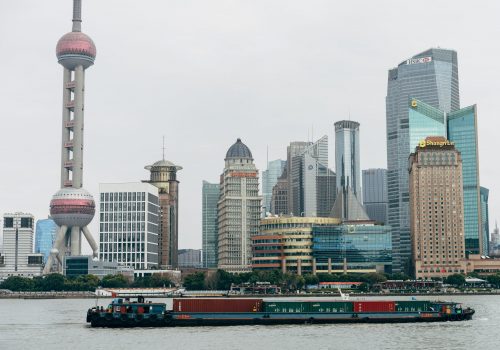ANT Group IPO compromise shows that foreign investment in China will only go so far
Last December, Chinese President Xi Jinping blocked ANT Group’s planned IPO and no one was quite sure what would come next. Then news broke this morning that ANT Group and Chinese regulators reached an agreement to restructure the fintech giant into a financial holding company. As a financial holding company, ANT must abide by a stricter set of regulations created for the banking sector. Although the details are still somewhat vague it seems clear the move will allow the Chinese Communist Party to have more influence on the growth of one of the world’s largest mobile payment platforms and online retailers. The decision has been a long time in the making.
The rise of foreign holdings on Chinese onshore stocks dates back five years. That means that today’s decision is less a punishment of ANT but instead a template for moving forward with other Chinese companies who seek to go public. Let’s remember that China has also recently tightened its screws on investment screening, just as US and European mechanisms get stricter.
Over the past decade, Chinese companies from manufacturing to financial services have been expanding their international footprint and seeking foreign capital. The premise is nothing new to the Chinese, who have increased the appeal of domestic bond markets and welcomed foreign investment on their shores since the 90s—as long as they can control the means of the investment. But allowing a Western-based multinational to build a factory in Shenzhen, especially through a forced joint venture with a domestic firm, is quite different than opening up one of your most successful tech firms to foreign investors on international markets, where trading in shares can fall beyond the reach of Chinese regulators.
This is why ANT’s IPO triggered alarm bells within the Communist Party. If foreigners can acquire controlling shares of Chinese companies, this could, over time, change the business model in a way that is harmful to China’s state capitalism model or incentivize compliance with Western data protection rules. It would also allow foreigners to profit disproportionally from Chinese success.
Jack Ma didn’t help the situation when in December he called the Chinese regulators “pawn shops” for their backward views on regulatory policy. But while it’s convenient to see the new move as retaliation for the comment, the numbers tell a different story. In addition to concerns about foreign ownership, regulators also had legitimate fears that ANT’s enormous size post-IPO could endanger the stability of China’s highly leveraged banking sector.
